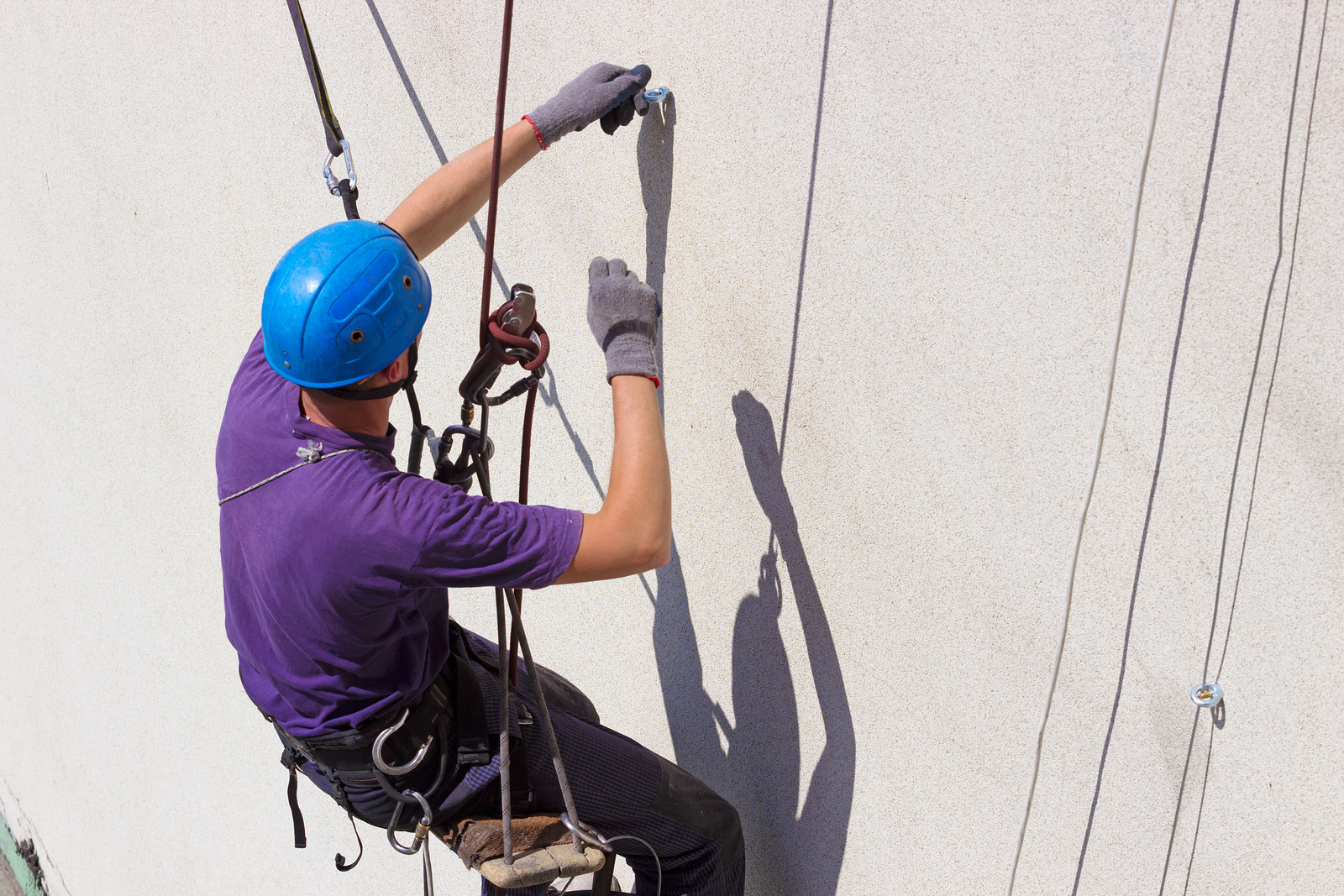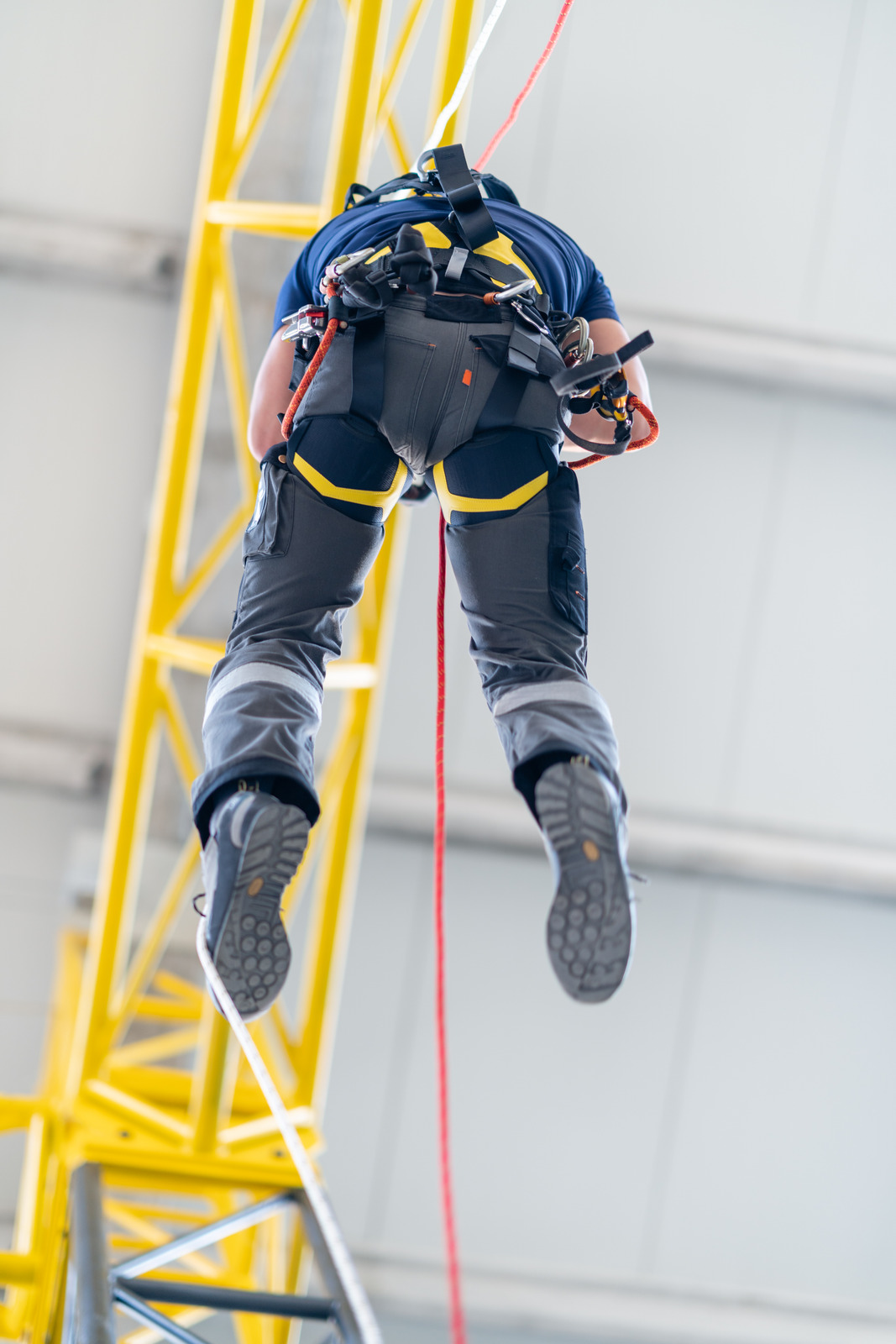Safe work at height in rope access - Level I
2618
Registered participants
- Training tailored to client's needs
- Training at the client's location
- Open training at our location - if you have few employees, join us!
Safe work at height in rope access - Level I
 Our ERGON center warmly invites you to a training
preparing you for working at heights using first-degree rope access. Our specialized course will allow you to acquire climbing qualifications, which are necessary when work is performed at least one meter above ground level. After
completing this course, you will be able to work using rope access under the supervision of a person with third-degree qualifications. This training is dedicated to individuals starting their career in rope access. Thanks to our extensive experience
in providing professional training and our professional training staff, you will easily acquire new qualifications, enabling you to work in a new profession.
Our ERGON center warmly invites you to a training
preparing you for working at heights using first-degree rope access. Our specialized course will allow you to acquire climbing qualifications, which are necessary when work is performed at least one meter above ground level. After
completing this course, you will be able to work using rope access under the supervision of a person with third-degree qualifications. This training is dedicated to individuals starting their career in rope access. Thanks to our extensive experience
in providing professional training and our professional training staff, you will easily acquire new qualifications, enabling you to work in a new profession.
Work after Training
Skills in safe work at heights will be useful for workers in various specialties, including but not limited to:- installers,
- roofers,
- assemblers,
- electricians,
- groundskeepers,
- welders,
- storekeepers,
- roof snow removal workers.
It's Worth Training
Skills that can be acquired in the course bring several benefits, both for workers and employers. The most important of these include:- increased work efficiency,
- reduction of unnecessary fear,
- faster work execution,
- protection of the health and lives of workers,
- fulfilling duties in accordance with the law,
- improvement of company quality,
- proficiency in safety equipment use,
- greater knowledge of possible risks,
- accident prevention,
- risk elimination,
- knowledge of securing methods,
- familiarity with modern equipment,
- the ability to properly assess safety conditions.
Course Program
 The training consists of theoretical and practical sessions.
We provide professionally prepared training materials useful for self-study. During practical exercises, participants use modern equipment. Topics covered in the theoretical part include:
The training consists of theoretical and practical sessions.
We provide professionally prepared training materials useful for self-study. During practical exercises, participants use modern equipment. Topics covered in the theoretical part include:
- workstation organization,
- hazards associated with working at heights,
- construction of descent and safety workstations,
- principles of safe work at heights,
- components of personal equipment, such as clamps, descenders, helmets, types of harnesses, energy absorbers, lanyards.
- tying knots,
- self-securing techniques,
- climbing on ropes,
- descending on ropes,
- building safety and descent workstations,
- transfers,
- moving on horizontal and sloping sections,
- properly lowering an injured person in the event of an accident.
Qualifications
After completing the theoretical and practical parts of the training and passing the exam successfully, participants receive a certificate that entitles them to work at heights.Participation Requirements
- be at least 18 years old,
- have at least basic education,
- physical condition and fitness enabling work at heights,
- medical certificate from a occupational physician confirming good health, enabling work at heights.
Medical Contraindications
A person who wants to work as an industrial climber should be in good mental and physical health. They should not have health problems such as:- fainting,
- epilepsy,
- high blood pressure,
- heart diseases,
- limb function disorders,
- balance issues,
- dizziness,
- diabetes,
- mental illnesses,
- alcoholism,
- substance abuse.
Location
We organize training at our main office in Warsaw and in many other cities throughout Poland.Other Our Rope Access Trainings
- second-degree rope access techniques course,
- third-degree rope access techniques course,
- temporary anchorage point creation course,
- construction rope access course,
- building rope access course,
- height evacuation course,
- confined space rescue course.
Frequently Asked Questions
Why is it worth signing up for training?
Participating in the course brings several benefits, including increased safety and work efficiency, learning how to perform duties in accordance with the law, and efficient operation of safety equipment.
What are the formal requirements to participate in the course?
Course participants should be adults, have at least basic education, be physically fit, and provide a medical certificate confirming good health for working at heights.
What does the training look like?
The training consists of both theoretical and practical sessions, concluding with an exam.
Do you also offer second and third-degree rope access courses?
Yes. Our range of rope access training is extensive and includes other courses designed for individuals working at heights. We invite you to learn more about them.
